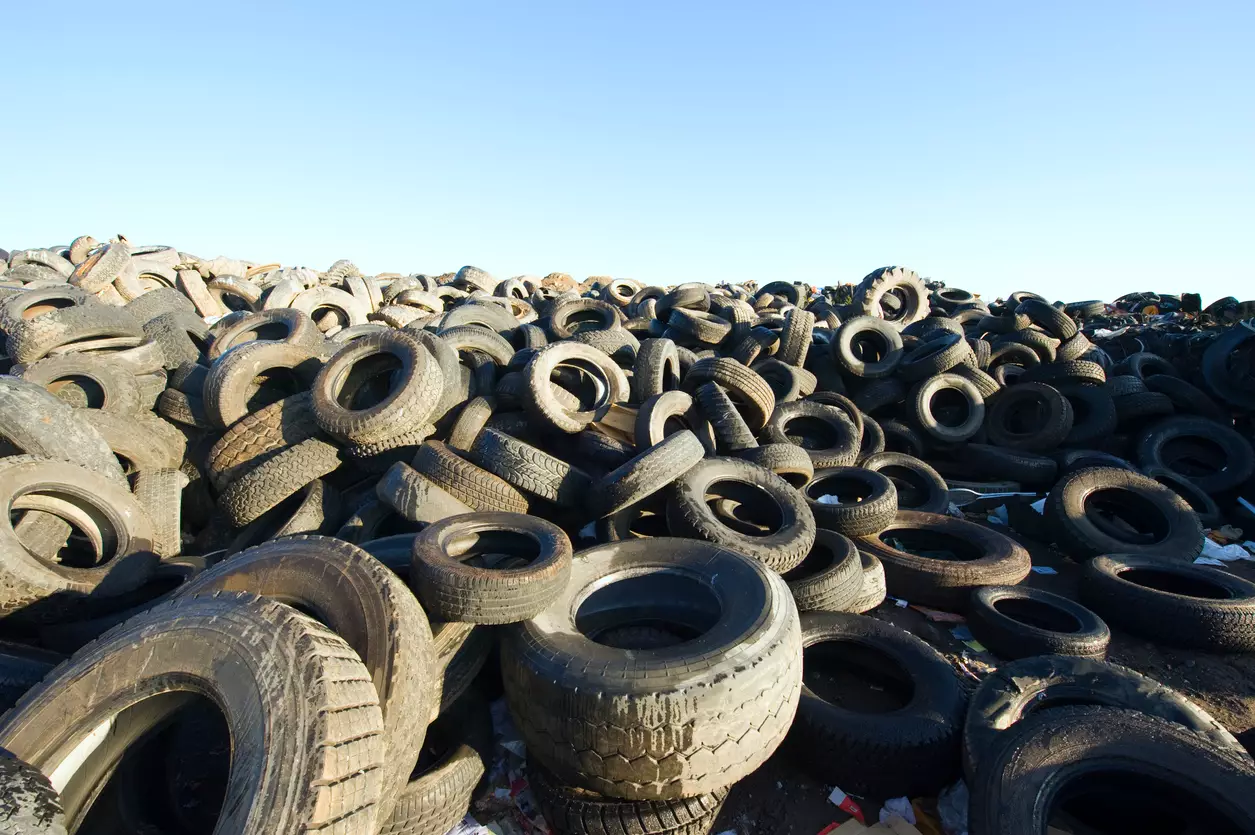The recent rise in the number of VIN-related frauds, especially those involving used cars sold via online listings and out-of-state transactions, has increased the need for VIN verifications before buying pre-owned cars. Many common scams involve VIN manipulation, including:
- Cloning: This involves using a legitimate VIN from another vehicle and placing it on a stolen or salvaged car to make it appear clean.
- Title Washing: Title washing refers to moving a vehicle across state lines to erase records of salvage or flood damage.
- Fake Listings: This involves posting online ads with real VINs from legitimate vehicles but showing another car at the point of sale.
- VIN Alteration: VIN alteration refers to physically altering or tampering with the VIN plate to hide a vehicle’s true history.
Due to these potential frauds and other issues that may arise, a physical VIN verification is an important step that buyers must take before finalizing a car purchase, whether buying from a neighboring state or even importing a vehicle from a foreign country.
Note that while running a VIN check is also an important step before buying a used car, it is not foolproof. A clean history does not always guarantee that a vehicle has not been cloned, stolen, or fraudulently altered. VIN databases only report incidents and actions that have been officially documented; they cannot detect VIN tampering, cloning, or fraud that has not been reported. Hence, buyers are advised to ask for multiple forms of proof before meeting in person to finalize a used car purchase. Examples of proofs that may be demanded from the seller include:
- Clear photos of the dashboard VIN plate (visible through the windshield).
- Photos of the VIN sticker on the driver’s side door jamb (this should match the dashboard VIN exactly).
- Photos of the vehicle title and current registration documents (names, VINs, and addresses should be consistent).
Keep in mind that some scammers may provide a legitimate VIN that checks out online, but when you meet them, they show you a different vehicle, often one that is stolen or improperly registered.
What is a VIN Verification?
Although many people refer to a vehicle history report when thinking of VIN verification, the terms do not mean the same thing. VIN verification, also called a VIN inspection, is a mandatory legal process in several states in the United States when anyone tries to register a used car purchased from another state.
VIN verification is typically conducted via a physical inspection by a certified DMV agent or licensed inspector to confirm that the Vehicle Identification Number (VIN) stamped on the vehicle matches the number listed on the title and other supporting paperwork. Hence, a VIN inspection is a process whereby a VIN verifier checks the actual vehicle (a physical process) and not its accident history or maintenance record, to ensure that the VIN is what the vehicle documents claim it is. State DMVs conduct this process to ensure the legitimacy of the vehicle's identity, protect used car buyers and the state against fraud, and maintain accurate DMV records.
Most states in the United States require a VIN verification before the DMV or an equivalent agency in the state may register a vehicle. After an individual brings a vehicle into a state, they typically need first to complete a VIN inspection before they may register the vehicle with the state. Without a VIN inspection certification, paperwork will be incomplete, and the vehicle registration will be delayed.
How Does VIN Verification Work?
A VIN verification involves more than just looking through a vehicle's paperwork. It is a thorough physical inspection of a vehicle and is especially important for salvage or rebuilt vehicles, cars imported from other countries or states, or used cars bought out of state.
A VIN inspection must be conducted by an authorized individual and not the vehicle buyer or seller. Depending on the state DMV regulations, a VIN inspection may be conducted by a VIN verifier who may be a state-certified inspection station mechanic, a notary public, a law enforcement officer, an automobile mechanic employed by a dealer, an armed forces installation provost marshal or motor officer. Most states charge a nominal fee for VIN verification, typically between $10 and $50. However, some DMVs or equivalent agencies may offer it for free at approved centers or within their DMV locations.
When getting a VIN check, the VIN verifier will check multiple locations where a Vehicle Identification Number may be stamped on a car, such as the dashboard, driver's side door jamb, or engine block. The VIN inspection will also check for evidence of grinding, scratching, re-engraving, font mismatches, or gluing plates that may indicate that the VIN has been altered.
After the VIN verifier locates the VIN and ensures that no sign of tampering exists, they will verify that the VIN matches exactly across all vehicle parts and the paperwork, such as the title and the bill of sale. In addition, the inspector will ensure that the vehicle's physical description, such as make, model, year, and color, matches the information in the paperwork. Once all verifications have been completed, a VIN verification form is typically signed by the individual conducting the VIN inspection, which will be submitted to the DMV as part of the vehicle registration process.
While the specific process to get a VIN inspection done may vary from one jurisdiction to another, it typically follows the following steps:
Here are the general steps on how to get a VIN verification done:
- Check State Requirements: Verify your state's specific requirements for VIN verification. Some states require you to visit the Department of Motor Vehicles (DMV), while others allow verification through local police stations or private licensed VIN verifiers.
- Gather Necessary Documents: Collect all required paperwork, such as the vehicle's title, registration, or any state-specific verification forms.
- Visit an Authorized Verification Center: Take your vehicle to the designated verification center. Ensure you bring the necessary documents.
- Pay Applicable Fees: Depending on whether your state DMV undertakes the process via its employee or allows the use of a private verifier, be prepared to pay an inspection fee, which typically ranges from $10 to $50.
- Complete the Verification Process: The authorized personnel will inspect the vehicle and verify the VIN. Once completed, they will provide the necessary documentation confirming the verification.
- Submit Verified Paperwork: Return the verified paperwork to the DMV or relevant authority to complete the transaction, such as registration or title transfer.
States That Require a VIN Inspection
The following states require VIN inspections when registering out-of-state cars:
States Where VIN Verification is Not Mandatory
The following states do not generally require VIN verification for most standard vehicle registrations.
- Alabama
- Arkansas
- Georgia
- Iowa
- Louisiana
- Michigan
- Minnesota
- Mississippi
- New Jersey
- North Carolina
- South Carolina
- Virginia
- Wisconsin
These states do not require VIN inspection for varying reasons, such as simplifying vehicle registration processes and prioritizing emissions testing or safety inspections. Additionally, states with lower volumes of out-of-state vehicle registrations often avoid mandatory inspections.
However, a VIN inspection may still be required in these states if the vehicle has a salvage, rebuilt, or foreign title. If a car is also being registered as a custom-built car in the listed states, a VIN inspection may be required.
What If the VIN Doesn’t Match the Paperwork?
A VIN mismatch is usually an indicator of serious criminal activity, such as the possibility that the vehicle was stolen or has its VIN cloned to disguise its true identity. This may cause unsuspecting used car buyers to suffer financial loss and other legal issues. Once a VIN verifier or inspection officer discovers that the VIN on a vehicle does not match the paperwork, the vehicle's registration process with the state will be stopped immediately. If this happens, a buyer must take immediate action to protect themselves and avoid legal troubles.
Some quick actions that a buyer may take include the following:
- Do Not Proceed With Registration: Once a VIN mismatch is identified, the buyer must immediately stop the registration process. Attempting to continue with registration after a mismatch may raise legal issues and possibly result in criminal charges.
- Contact Law Enforcement Immediately: The next step is to report the mismatch to local law enforcement or the DMV’s investigations division. In most cases, authorities will seize the vehicle to investigate whether it was stolen, tampered with, or improperly titled. Reporting the issue yourself shows good faith and protects you from accusations of knowingly handling stolen property.
- Notify the Seller: It is important to reach out to the person or dealership that sold the vehicle and inform them of the situation. You should request a clear explanation, and if fraud or misrepresentation is suspected, you may need to demand a refund.
- Gather and Secure All Documents: The buyer should immediately organize and secure all purchase-related paperwork, including receipts, titles, bills of sale, vehicle advertisements, and any messages exchanged with the seller. These documents will be critical for law enforcement investigations and may serve as evidence if a legal dispute arises.
- Avoid Driving the Vehicle: Until the matter is resolved, the vehicle should not be driven. Operating a car with questionable or mismatched VIN information may expose the buyer to criminal liability, even if they were unaware of the issue when purchasing the car. In many jurisdictions in the United States, knowingly or unknowingly operating a vehicle with a fraudulent VIN is considered a serious offense.
- Consult an Attorney if Necessary: If the situation becomes complex, especially if law enforcement investigation delays are lengthy or if criminal accusations are made, the buyer should consult an attorney. Legal counsel may help protect the buyer’s rights and assist in recovering financial losses.
What Vehicles Are Not Required to Undergo VIN Verification?
Before determining where to get a VIN inspection, you must be aware that not all vehicles require a VIN verification. However, whether a vehicle needs a VIN inspection or not depends on the state laws in the jurisdiction where the car is to be registered. Other factors that may also determine whether a vehicle will have its VIN verified are the type of vehicle and its registration history.
Common VIN verification exemptions include the following:
- Brand-New Vehicles: Vehicles purchased new from a dealership, accompanied by an MCO/MSO (Manufacturer’s Certificate or Statement of Origin), usually do not require VIN verification. Since these vehicles have not been previously titled or registered, the MCO/MSO serves as sufficient proof of authenticity. For instance, California exempts such vehicles from VIN verification, provided they meet specific criteria, including compliance with emission standards and absence of modifications.
- In-State Title Transfers: When a vehicle with a current, valid title is sold and registered within the same state, VIN verification is typically unnecessary. This is because the state's Department of Motor Vehicles (DMV) already has the vehicle's information on record.
- Specific Vehicle Types: Certain vehicles are exempt from VIN verification, depending on state regulations:
- Motorcycles and All-Terrain Vehicles (ATVs): Some states do not require VIN verification for these vehicles.
- Trailers: In California, new trailers eligible for registration under the Permanent Trailer Identification (PTI) program, which have never been registered and have not been modified, are exempt.
- Farm Vehicles: Agricultural vehicles used exclusively on farms may be exempt in certain states.
- Antique or Classic Vehicles: Some states exempt antique or classic vehicles from VIN verification, especially if they have been continuously registered within the state.
Several states, such as Alaska, Arkansas, Iowa, Michigan, Minnesota, Mississippi, North Dakota, South Carolina, and South Dakota, have no VIN verification requirements even for out-of-state vehicles. A VIN inspection is not mandatory if you intend to register a vehicle in such states.
Since exceptions to VIN inspection requirements vary widely from state to state, it is important that you check with the local DMV in the state where you intend to register your vehicle to verify whether a VIN inspection will be required.




















